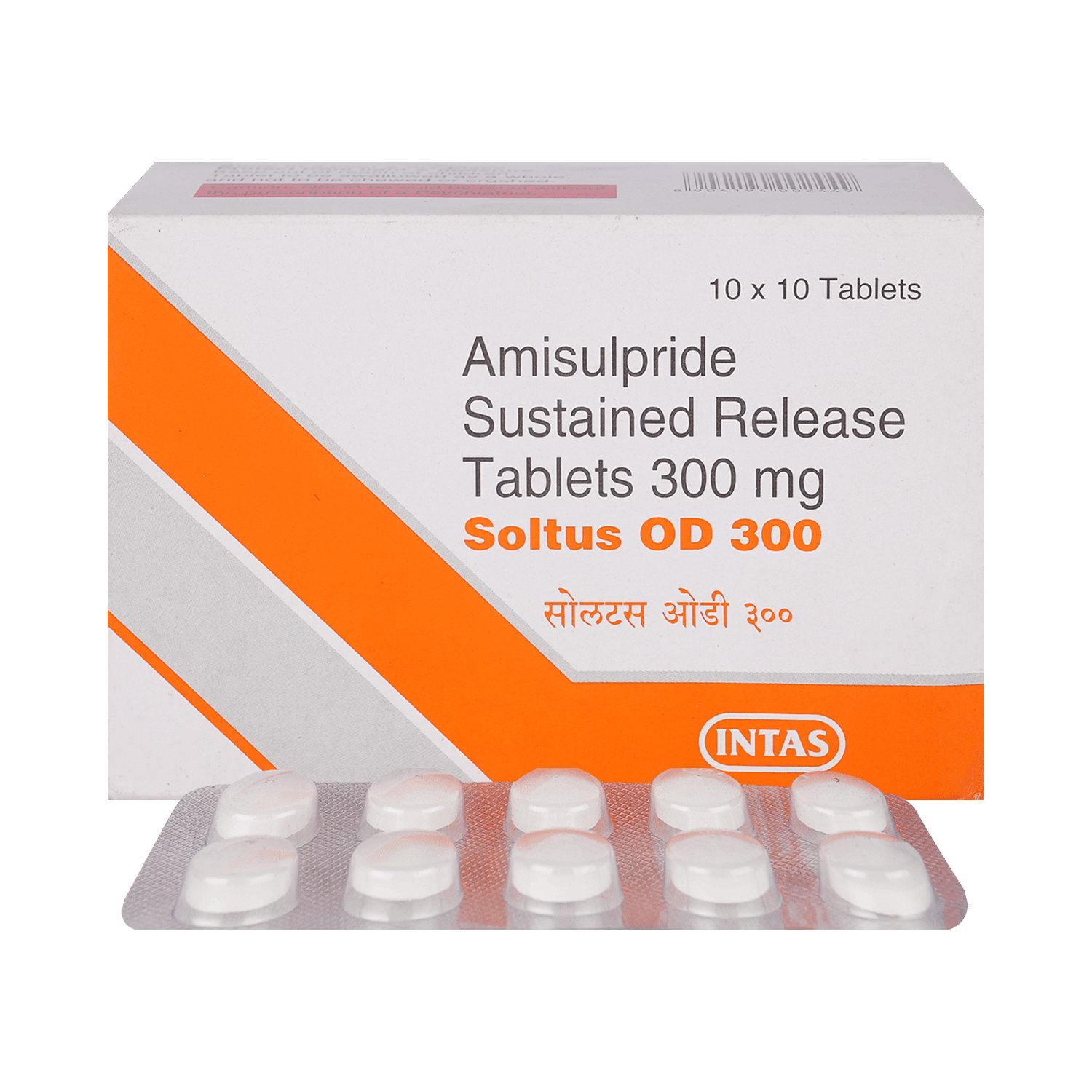
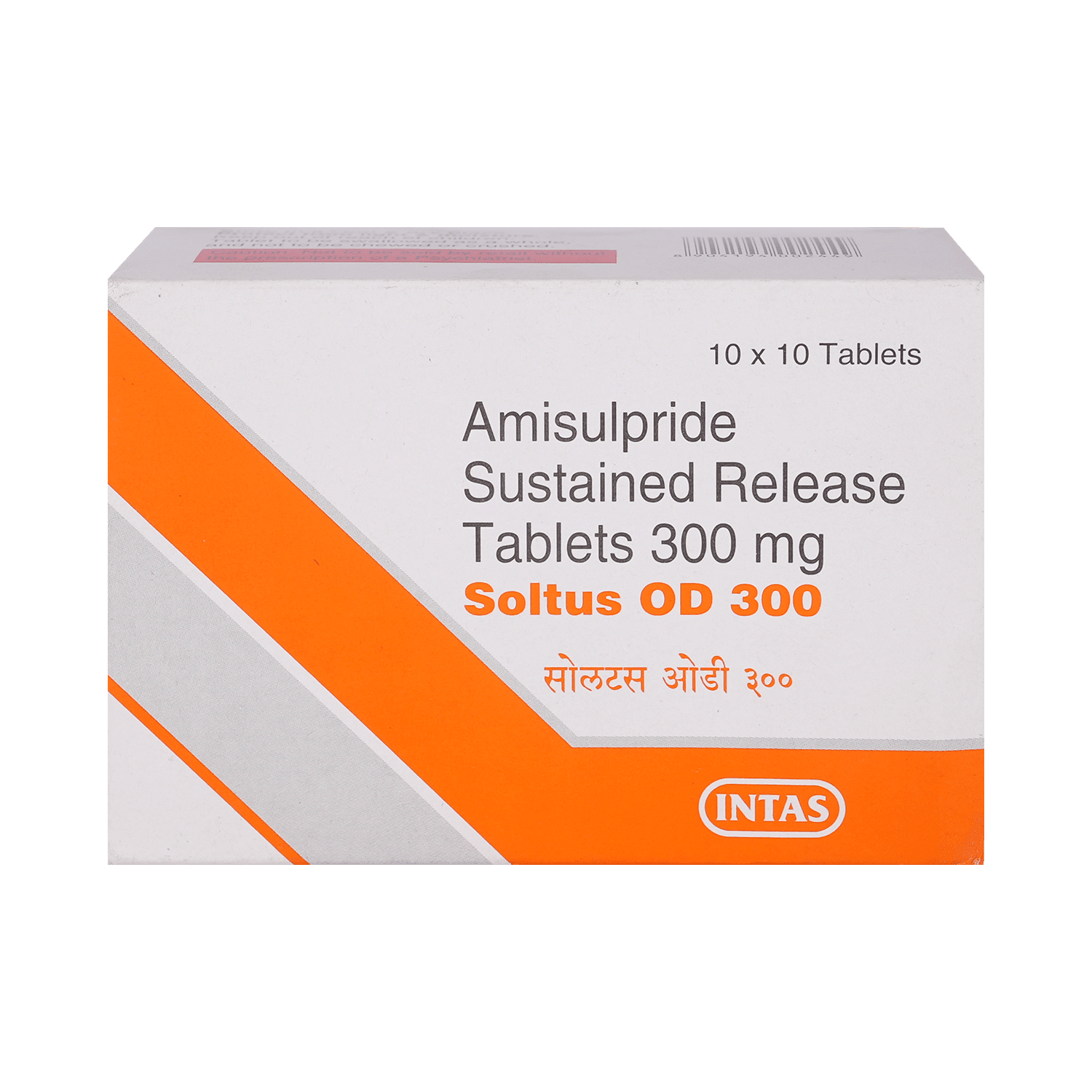

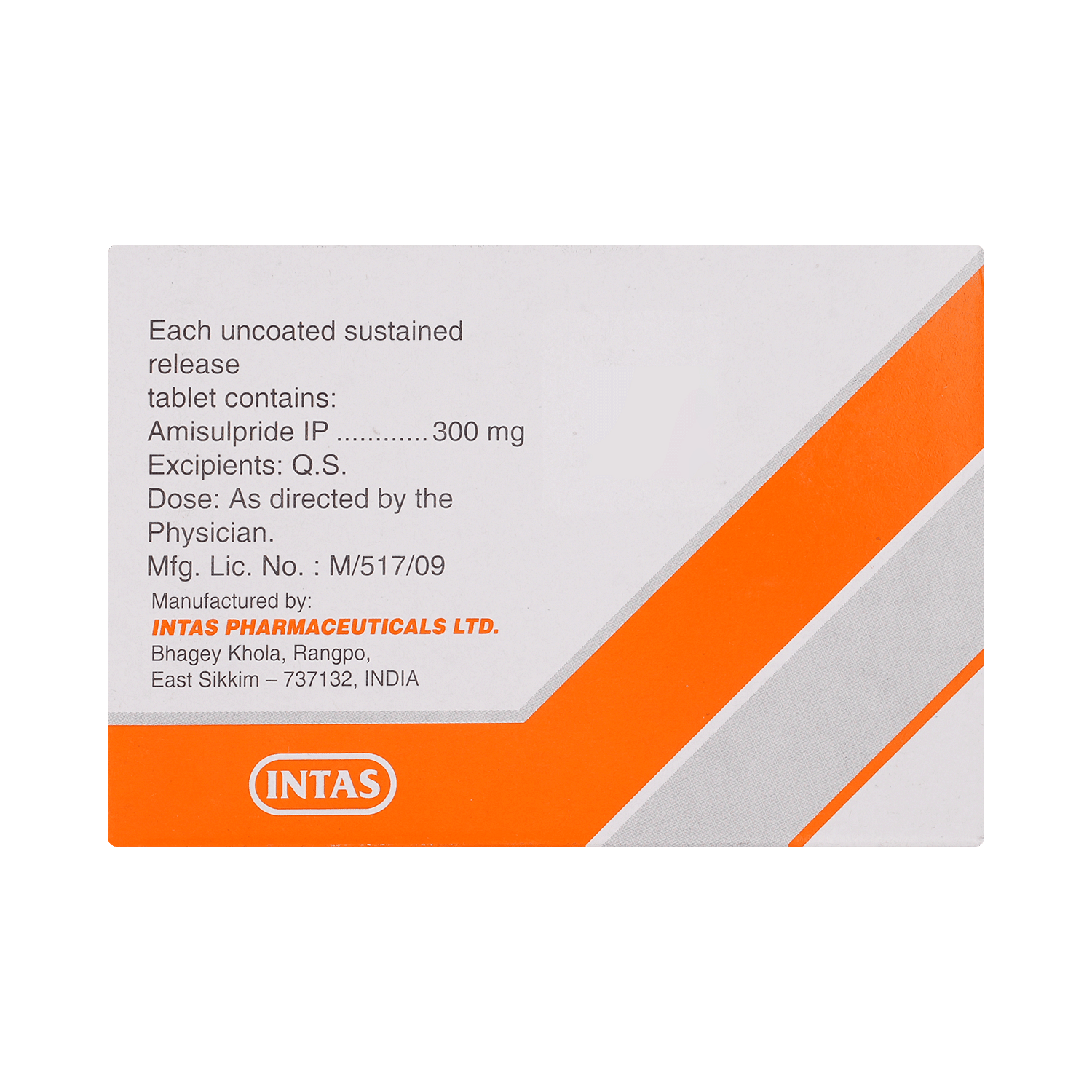
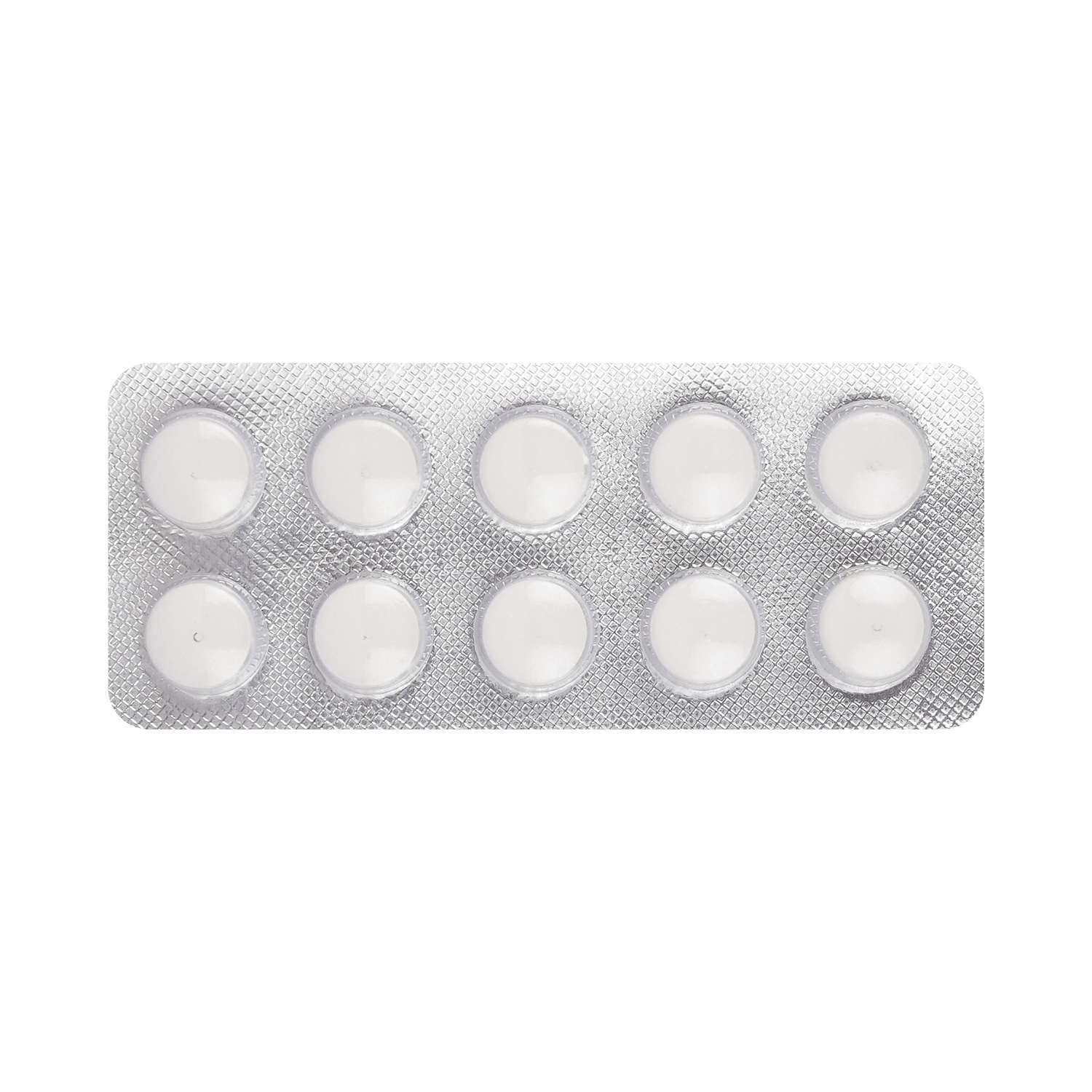
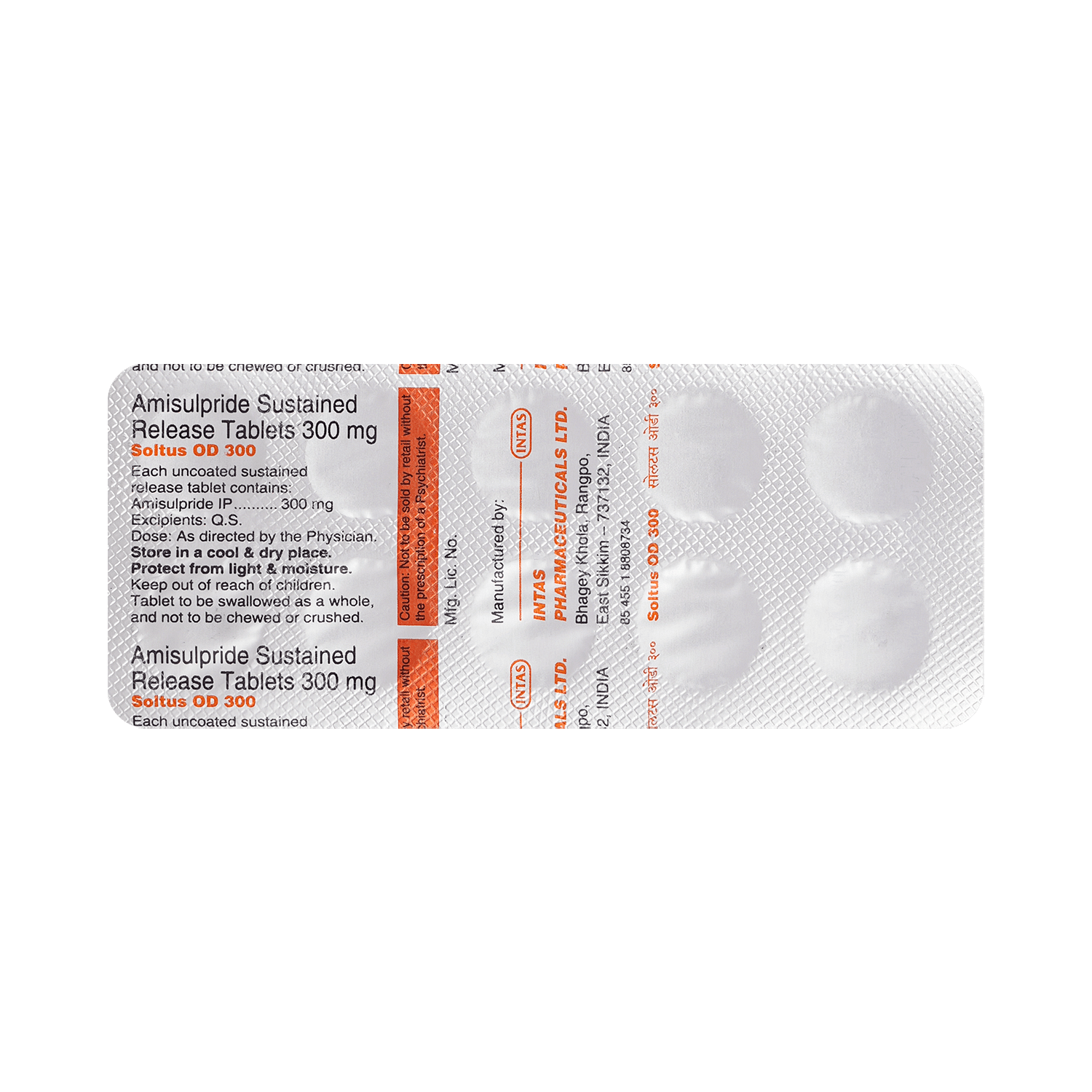
Soltus OD 300 Tablet
Manufacturer
Intas Pharmaceuticals Ltd
Salt Composition
Amisulpride (300mg)
Key Information
Short Description
Soltus OD 300mg Tablet is a prescription medicine used to treat schizophrenia, a mental disorder that can result in hallucinations or delusions and also affects a person's ability to think and behave.
Dosage Form
Tablet
Introduction
Soltus OD 300mg Tablet is an atypical antipsychotic used to treat schizophrenia. It works by modulating the action of certain chemical messengers in the brain that affect thoughts. It is available in the form of a tablet and should be taken as directed by the doctor.
Directions for Use
Take this medicine in the dose and duration as advised by your doctor. Swallow it as a whole. Do not chew, crush or break it. It may be taken with or without food, but it is better to take it at a fixed time.
How it works
Soltus OD 300mg Tablet is an atypical antipsychotic. It works by modulating the action of certain chemical messengers in the brain that affect thoughts.
Quick Tips
Take it at bedtime to avoid feeling sleepy during the day Use caution while driving or doing anything that requires concentration as it can cause dizziness and sleepiness Rise slowly if you have been sitting or lying down to lower the chance of feeling dizzy or passing out Do not consume alcohol while on treatment with this medicine as it may worsen the side effects It may cause increased weight, blood sugar, cholesterol, and triglycerides (fat) levels. Eat healthy and exercise regularly
Frequently asked questions
Does Soltus OD 300mg Tablet make you sleepy?
Yes, Soltus OD 300mg Tablet may cause drowsiness, decreased alertness, and blurred vision. These symptoms indicate the medication's potential to affect your cognitive function. If experiencing these effects, avoid operating heavy machinery or driving.
When should I take Soltus OD 300mg Tablet?
Your doctor will determine the optimal timing for taking this medication based on your dosage. For dosages up to 300 mg, you can take it at any time of day, preferably at the same time daily. For doses exceeding 300 mg, split the dose in half (morning and evening). You can take the medicine during or between meals.
How does Soltus OD 300mg Tablet affect the brain?
Soltus OD 300mg Tablet belongs to the antipsychotic class of drugs. It acts by affecting dopamine receptors within the brain. Dopamine is a neurotransmitter crucial for regulating mood and behavior. Schizophrenia is characterized by elevated dopamine activity in the brain, leading to delusions and hallucinations. Soltus OD 300mg Tablet helps by blocking this excessive dopamine activity, thus managing symptoms of schizophrenia.
Does Soltus OD 300mg Tablet help with anxiety?
No, there is no scientific evidence to support the use of Soltus OD 300mg Tablet for treating anxiety. Conversely, it can exacerbate existing anxiety as a common side effect.
Can I stop taking Soltus OD 300mg Tablet after some time?
No, you should continue taking Soltus OD 300mg Tablet under your doctor's guidance until they provide otherwise. Do not discontinue the medication abruptly as it could worsen your condition or trigger a return of symptoms. Consult with your doctor who will gradually reduce your dosage.
Who should not take Soltus OD 300mg Tablet?
It is essential to consult your doctor before taking Soltus OD 300mg Tablet, especially if you are under the age of 15, have a history of allergies to this medication, or have a breast cancer tumor known as prolactinoma. Additionally, individuals who are breastfeeding, those with pheochromocytoma (adrenal gland tumors), or are currently taking certain medications like levodopa, medicines for heart rhythm disorders, etc., should consult their doctor before starting the medication.
Is Soltus OD 300mg Tablet addictive?
No, there is no evidence to suggest that Soltus OD 300mg Tablet leads to addiction. It does not exhibit any tendency towards abuse.
What are the withdrawal symptoms of Soltus OD 300mg Tablet?
Abruptly stopping Soltus OD 300mg Tablet may lead to withdrawal symptoms like nausea, vomiting, sweating, trouble sleeping, restlessness, muscle stiffness or abnormal movements. These symptoms could signify a resurgence of your condition. Therefore, consider gradually reducing the dose under your doctor's guidance.


